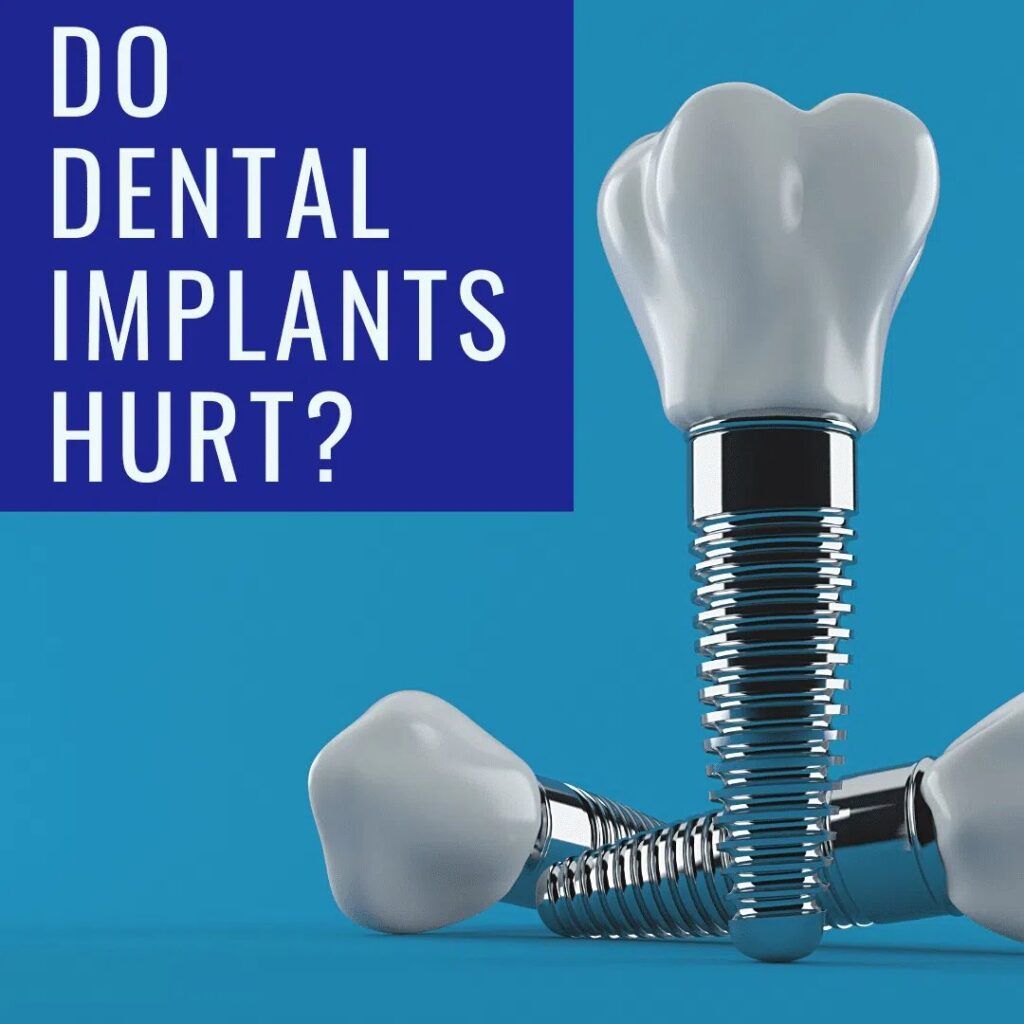One of the best things about dental implants is also one of the reasons why some people fear the implant procedure. The simple fact that implants are placed in the jaw allows them to act as an anchor for various dental prosthetics, while simultaneously restoring normal biting and chewing functions. However, when people hear the term “dental implant surgery”, they may become hesitant about moving forward with restorative treatment using dental implants.
While it is true that dental implant placement does require a minor oral surgery, this procedure is not as painful as many people think. For starters, modern dentistry has come a long way in pain management techniques and implant dentistry is no exception. Not only that, but implant dentists have the experience necessary to place implants in such a way that minimized postoperative pain.
With that being said, dental implant surgery is not completely painless. Nor is it excruciating. To give you a better idea about what to expect in terms of sensation, let’s take a look at the procedure and the recovery process:
During Implant Surgery

For starters, it is important to remember that your implant dentist uses dental anesthetics and sedation for dental implant surgery. This ultimately means that the treatment area will be completely numb during the procedure, and you will be kept calm with varying levels of sedation. Local anesthesia will keep you conscious, but extremely relaxed, while general anesthesia will make you completely unconscious. Your dentist will discuss sedation options ahead of time to determine what is best for you.
In cases where local anesthesia is used, you will be able to hear what is happening around you and you may feel pressure during the procedure. However, you should not feel pain as a result of the anesthetics. Additionally, the bone dental implants are placed in contains few nerves, which means the body cannot produce excessive pain signals. People who have had both tooth extractions and dental implant surgery report that dental implant surgery is less painful than tooth extractions.
After Implant Surgery

After your implant surgery, you will generally experience some discomfort as your dental anesthetics begin to wear off. For this reason, your implant dentist may recommend taking over the counter pain medications before the anesthetics are expected to wear off. Most postoperative discomfort will occur within the first few days following surgery. After about a week, you may still have very mild discomfort and after two weeks, you should no longer experience any discomfort.
To help you heal faster and experience less postoperative discomfort, your implant dentist will provide you with detailed instructions to follow after your procedure. Following these instructions is the best way to manage your discomfort and prevent postoperative complications from occurring. Here are a few things that you can do after implant surgery to reduce any discomfort:
- Eat soft foods: the first few days, you will want to eat cool, soft foods and avoid foods that are hot in terms of temperature or taste. Not only do soft foods require less chewing, but cool foods will help alleviate postoperative discomfort inside your mouth.
- Rinse with salt water: although it tastes gross, rinsing your mouth with warm salt water actually helps alleviate discomfort and reduces the likelihood of infection.
- Use ice: ice packs can be used in the first few days to reduce possible swelling and alleviate discomfort
- Rest: doing too much too soon can result in excess discomfort. Therefore, you will want to take it easy for a few days and give your mouth a chance to heal

